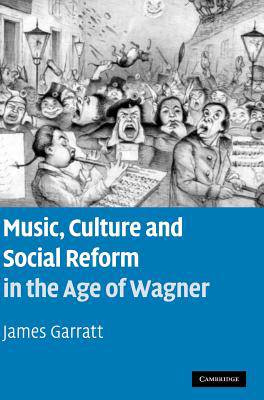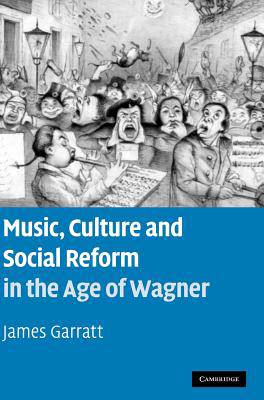
Bedankt voor het vertrouwen het afgelopen jaar! Om jou te bedanken bieden we GRATIS verzending (in België) aan op alles gedurende de hele maand januari.
- Afhalen na 1 uur in een winkel met voorraad
- In januari gratis thuislevering in België
- Ruim aanbod met 7 miljoen producten
Bedankt voor het vertrouwen het afgelopen jaar! Om jou te bedanken bieden we GRATIS verzending (in België) aan op alles gedurende de hele maand januari.
- Afhalen na 1 uur in een winkel met voorraad
- In januari gratis thuislevering in België
- Ruim aanbod met 7 miljoen producten
Zoeken
€ 183,45
+ 366 punten
Omschrijving
Challenging received views of music in nineteenth-century German thought, culture and society, this 2010 book provides a radical reappraisal of its socio-political meanings and functions. Garratt argues that far from governing the nineteenth-century musical discourse and practice, the concept of artistic autonomy and the aesthetic categories bequeathed by Weimar classicism were persistently challenged by alternative models of music's social role. The book investigates these competing models and the social projects that gave rise to them. It interrogates nineteenth-century musical discourse, discussing a wide range of manifestos championing musical democratization or seeking to make music an engine for the transformation of society. In addition, it explores institutions and movements that attempted to realize these goals, and compositions - by Mendelssohn, Lortzing and Liszt as well as Wagner - in which the relation between aesthetic and social claims is programmatic.
Specificaties
Betrokkenen
- Auteur(s):
- Uitgeverij:
Inhoud
- Aantal bladzijden:
- 306
- Taal:
- Engels
Eigenschappen
- Productcode (EAN):
- 9780521110549
- Verschijningsdatum:
- 21/01/2010
- Uitvoering:
- Hardcover
- Formaat:
- Ongenaaid / garenloos gebonden
- Afmetingen:
- 175 mm x 249 mm
- Gewicht:
- 748 g

Alleen bij Standaard Boekhandel
+ 366 punten op je klantenkaart van Standaard Boekhandel
Beoordelingen
We publiceren alleen reviews die voldoen aan de voorwaarden voor reviews. Bekijk onze voorwaarden voor reviews.









